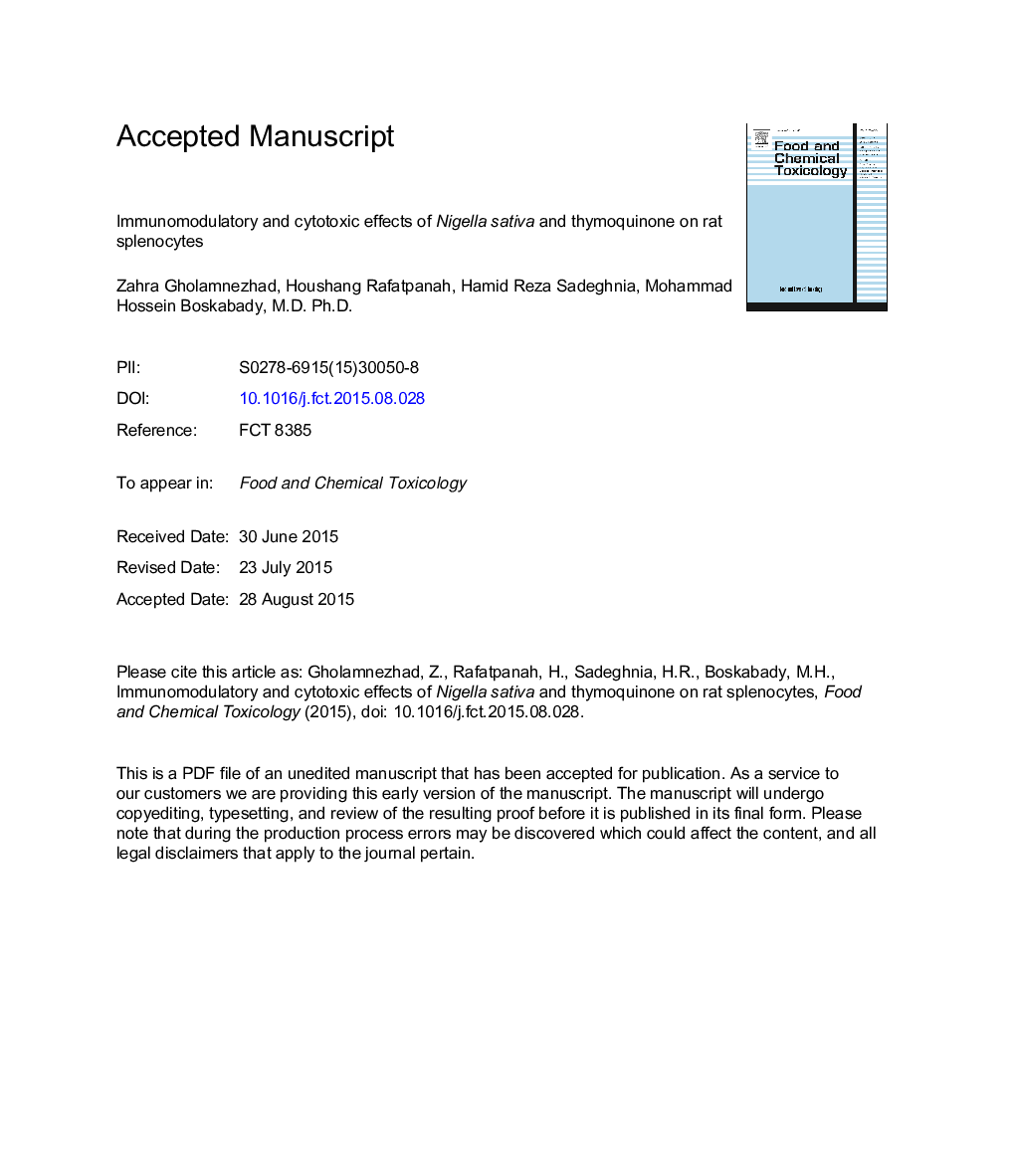| Article ID | Journal | Published Year | Pages | File Type |
|---|---|---|---|---|
| 5849572 | Food and Chemical Toxicology | 2015 | 31 Pages |
Abstract
Three different concentrations of Nigella sativa (N. sativa) ethanolic extract, thymoquinone (TQ), dexamethasone, and saline were examined to see whether they had any effects on cell viability, proliferation, and interleukin 4 (IL-4) and interferon-γ (IFN-γ) secretion in non-stimulated, phytohemagglutinin (PHA) and concavaline A (Con A)-stimulated splenocytes. In PHA and Con A-stimulated splenocytes, cell viability and proliferation were increased and Con A shifted cytokine profile towards Th2 balance. Dexamethasone treatment showed a suppression in viability, IFNγ and IL-4 secretion in non-stimulated and stimulated splenocytes. Extract and TQ reduced the viability and inhibited the proliferation of stimulated and non-stimulated splenocytes concentration-dependently. Higher concentrations of N. sativa (1000 mg/ml) and TQ (5 and 10 mg/ml) reduced the secretion of IL-4 in stimulated cells. Two higher concentrations of N. sativa had decreased IFNγ secretion in both stimulated and non-stimulated cells. In non-stimulated cells, only the highest and in Con A-stimulated cells, all TQ concentrations had inhibited IFNγ secretion. The highest concentration of N. sativa increased IFNγ/IL-4 ratio in both stimulated and non-stimulated cells while higher concentrations of TQ only had the same effect on stimulated cells. N. sativa and TQ showed cytotoxic inhibitory effect on rat splenocytes and on Th1/Th2 cytokines concentration-dependently. Higher concentrations of extract and TQ increased cytokines balance in Th1/Th2.
Keywords
Related Topics
Life Sciences
Agricultural and Biological Sciences
Food Science
Authors
Zahra Gholamnezhad, Houshang Rafatpanah, Hamid Reza Sadeghnia, Mohammad Hossein Boskabady,
